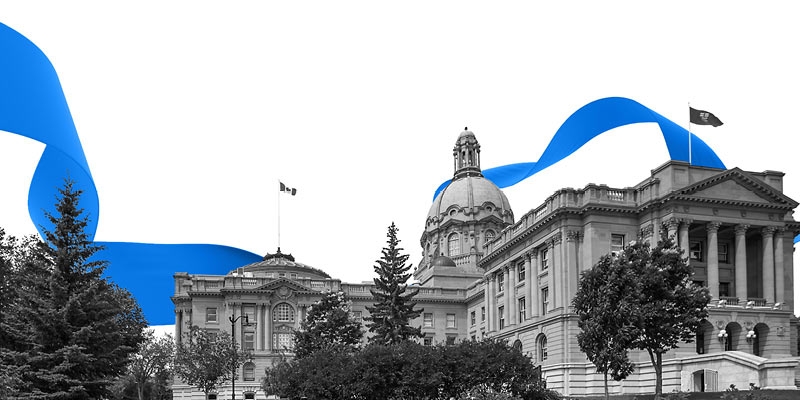Government debt-interest payments already hurting Albertans

Over the past decade, much has been made of the rapid deterioration of Alberta’s government finances—and with good reason. As recently as 2014/15, Alberta had no net debt at all, meaning the province’s financial assets actually exceeded its financial liabilities.
Since then, the province has racked up debt quickly. This year, provincial debt will reach a projected $36.6 billion (or approximately $8,400 per Albertan).
Of course, this debt has implications. If the debt grows large enough, it can put a drag on future economic growth, limit the availability of resources for other important purposes and produce other negative outcomes. But it’s also important to remember that the effects of growing provincial debt will not only be felt in the future; they are already being felt today.
Let’s think back to 2008/09, the last fiscal year Alberta had more financial assets than debt. Not surprisingly, government debt-interest payments were almost negligible back then at $58 per person and consuming less than one per cent of all provincial government revenue.
But a string of large deficits and new “capital” debt have caused these numbers to increase quickly. The province’s net debt has—in just a half-decade—climbed from approximately $0 to $36.6 billion today. Debt-interest payments are expected to hit $2.7 billion, and according Alberta’s budget forecasts, by 2022/23 will reach $3 billion. That’s approximately $700 per Albertan.
All these data show that government debt will not only affect future generations and that the negative effects are being felt today. Again, by 2022/23, $3 billion will be consumed by debt interest. That money will be unavailable for other important purposes such as key public services (health care or education) or to provide tax relief, which would allow Albertans to keep more of their money and help the economy grow.
These data also show that while Alberta is at the moment the lowest-debt province in Canada (relative to the size of the provincial economy), thanks to rapid debt accumulation Alberta is catching up quickly to other provinces. Unless corrective action is taken, the latest PBO report shows that the provincial debt burden (again, relative to the size of the economy) will keep growing. So all else equal, the debt-interest payments described above will continue growing as well.
The Kenney government is now preparing its next budget. These fiscal problems exist because successive governments in Alberta have permitted them to fester. One government after another has kicked the can down the road, leaving the problem for the next government to figure out. The bill for past complacency is already coming due.
If the Kenney government wishes to stop the flood of red ink, it must further reform and reduce government spending to finally start cleaning up the mess. Only time will tell whether it will do what other recent governments in Edmonton have failed to do—finally restore provincial finances to sustainability.
Author:
Subscribe to the Fraser Institute
Get the latest news from the Fraser Institute on the latest research studies, news and events.

